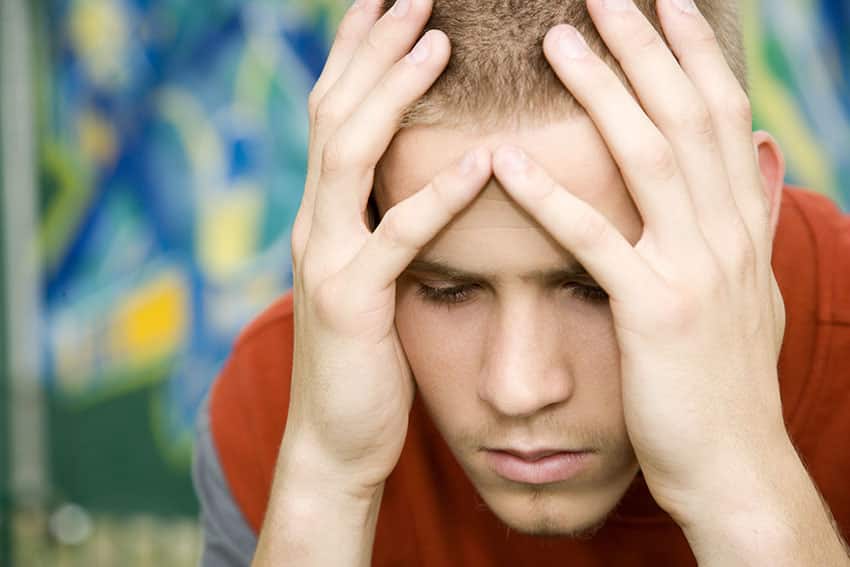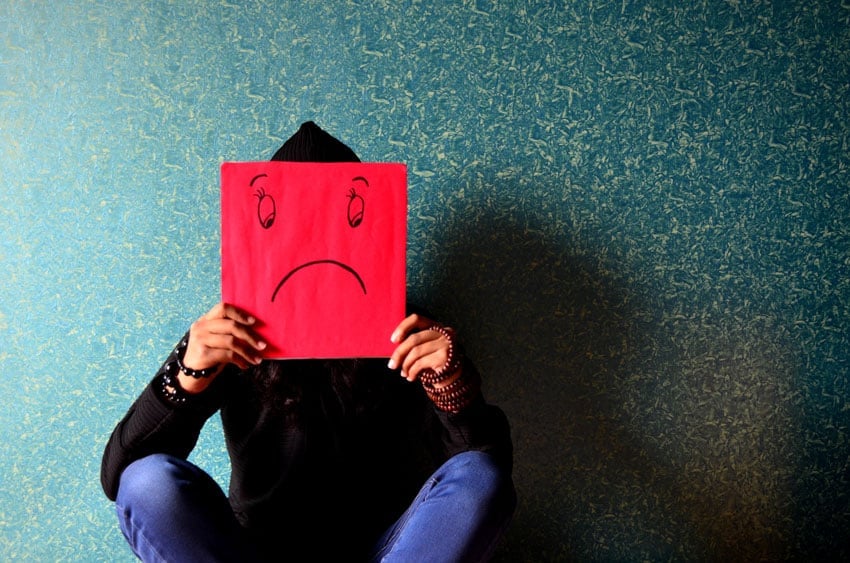Extreme fear? Poor memory? Avoiding difficult situations? Can’t sleep? Always nervous? You might have something to worry about.
Though no one likes to think about their child suffering from any sort of mental health issue, the reality is that depression and anxiety is simply a horrible reality for a growing number of our kids right across Australia.
According to Beyond Blue, 1 in 7 young people aged 4 to 17 years’ experience a mental health condition in any given year, and young people are statistically less likely than any other age group to seek professional help.

Tie that in with incredible new figures from Kids Helpline revealing a 60 per cent increase in reported cases of cyber bullying between 2018 and 2019, and the full picture starts to take shape.
One of the most troubling health problems among young people is anxiety.
Anxiety is the most common mental health condition in Australia. Beyond Blue says that on average, one in four people – one in three women and one in five men – will experience anxiety at some stage in their life. In a 12-month period, over two million Australians experience anxiety.
In a 12-month period, over two million Australians experience anxiety.
Though sometimes a little stress can be beneficial, like when there is danger or a looming deadline, when it crosses the line into anxiety it can be really damaging. This is especially true for teens who may not have the coping skills yet to deal with it.
That’s where parents come in.
Annie Wylie of Reach Out Australia says that spotting anxiety in your teen and taking action straight away can empower your teen to handle their anxiety later in life and stop anxiety in its tracks so that it doesn’t become an even bigger issue.
Here are Annie’s tips on what to watch for and how to handle anxiety in your teen.
How do I spot anxiety in my teen?
The symptoms of anxiety can look different for everybody. However, common signs and symptoms to look out for in your child are:
- Extreme fear or worry about specific situations, or everyday life
- Saying their mind is racing and they can’t think straight
- Inability to concentrate or poor memory
- Avoiding new and difficult situations
- Avoiding social situations, being socially isolated or extremely shy
- Always being on edge or nervous
- Being constantly tired and unable to sleep.
Can anxiety be physical too?
Absolutely! Emotions can rear their head physically as well as mentally. Sometimes people will be experiencing physical symptoms and be at a loss to what is causing them. So if you notice your teen experiencing any of these things or they complain to you about them it could be a sign of anxiety.
Physical symptoms that may accompany anxiety include:
- Chest pain, rapid heartbeats and sweating
- Shallow breathing and shortness of breath
- Restlessness and shaking
- Dry mouth, stomach pains, nausea, vomiting and diarrhoea

I’m pretty sure my teen is feeling anxious, now what?
Ok so you’ve ticked off a couple of the symptoms above and you’re worried that your teen is anxious. Firstly, a big well done for noticing that something is up and for taking the first step to support your teen. Secondly, there is plenty that you can do to suit all different situations so have a read and pick a few things that might work for you and your kid.
Breathing
It’s easy to discount the power of breathing exercises as it seems so simple – but the evidence is in.
For some people anxiety feels really physical
For some people anxiety feels really physical. They might feel on the verge of a panic attack, or just generally tight chested and worked up. Controlled breathing can give you immediate relief.
Why not try this breathing technique with your teen the next time they’re feeling anxious. It can feel like a bit less of a big deal if you’re doing it with them.
- To get a full breath of air into the lungs, breathe out as far as you can, keep going until there is no breath left in your lungs.
- Let your breathing reflex cause you to breathe in. Repeat this once or twice.
- Now take in a long slow breath to the count of four, hold your breath to the count of four and slowly breathe out to the count of four.
- Focus on something by staring at it while you do this and continue with the breathing until you feel calm.
ReachOut Breathe is an app that guides you through this breathing technique. Your teen can use it any time they want, even if you’re not there to do it with them.
Other coping strategies for anxiety
With breathing under control, there are other things that your child can do to manage their anxiety.
- Going for a walk or doing light exercise– this can help to distract the mind and to manage the physical symptoms of anxiety and stress.
- Writing down worries and setting aside a designated time to come back to them. This technique is used in cognitive behavioural therapy and can help make sure that excessive worrying doesn’t take over someone’s life. ReachOut has developed an app called Worry Time to guide a young person through the process.
- Meditation and mindfulness– these tools teach someone to focus on the present, taking your mind away from worrying about things in the past or the future. Smiling Mind is an app designed to teach young people mindfulness meditation, a technique which has been shown to help with anxiety.
Professional support
A lot of parents wonder when it’s time to go see a GP. Mum of 4 Lisa was pretty worried about taking her 14 year old daughter, who was refusing to go to school, to see a professional. She didn’t know how they would help and thought she would be judged as a mother. But in the end it was a really good experience for everybody.
She didn’t know how they would help and thought she would be judged as a mother… in the end it was a really good experience for everybody.
After seeing a GP and then a psychologist, her daughter can now tell when her anxiety is getting worse and speaks up about it. Lisa said “I had to remind myself that if I wasn’t a good parent, we wouldn’t be there. My job was to recognise that she needed some sort of help and to reach out to someone, so I was being a good parent, that’s what a good parent does.”
Like Lisa did, it’s a good idea to seek medical advice when you, or your child, notice that something is wrong.
A GP can help with mental health issues by:
- carrying out an assessment to find out more about what’s going on
- providing information about where you and your child can get support
- referring your child to a psychologist, or other mental health professional
- creating a Mental Health Treatment Plan which allows your child to receive a Medicare rebate from visiting a psychologist
- prescribing medication to deal with symptoms, if required
Anxiety affects different people in different ways. It doesn’t have to be lifelong though for some people it will be. The important thing to remember is that it doesn’t define your teenager and with the right support from you and others they can manage it.
Learn more about anxiety and teenagers at ReachOut Parents.

Annie Wylie is the Content Manager at ReachOut Parents. She uses her passion and expertise for achieving better outcomes for vulnerable communities to produce stories, resources and events that matter.
